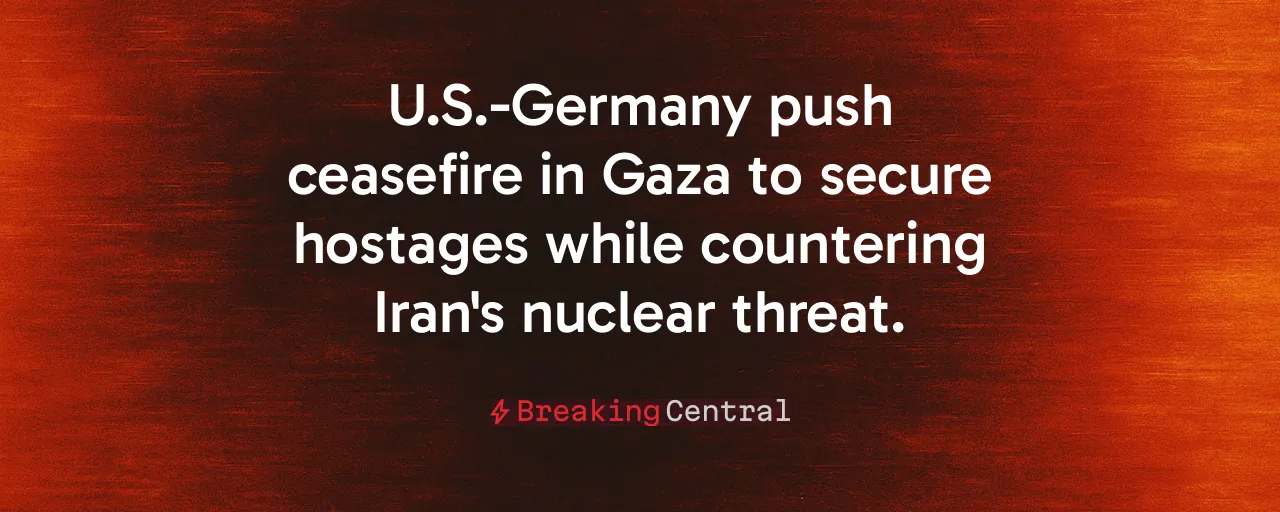A Bold Move for Middle East Stability
On July 9, 2025, U.S. Secretary of State Marco Rubio held a critical phone call with German Foreign Minister Johann Wadephul, addressing urgent Middle East challenges. Their discussion, as reported by the U.S. Department of State, centered on securing a fragile 60-day ceasefire between Israel and Hamas, freeing hostages, and preventing Iran from acquiring nuclear weapons. This conversation signals a resolute approach to regional security, rooted in prioritizing Israel's safety and global stability.
The stakes could not be higher. Iran's persistent nuclear ambitions threaten the Middle East and the world. Meanwhile, Hamas continues to hold hostages, exploiting civilian suffering in Gaza to maintain its grip. Rubio's diplomacy reflects a commitment to decisive action, favoring strength over concessions to adversaries.
Israel's Security Takes Center Stage
Israel's agreement to a 60-day ceasefire, contingent on Hamas releasing hostages, demonstrates its willingness to pursue peace without compromising security. Rubio underscored this point, pressing for Hamas to comply fully. Historical patterns show that past deals with militants often allowed rearmament, prolonging conflict. For instance, earlier truces in 2023 and 2024 failed when Hamas exploited pauses to regroup.
A firm stance ensures Israel's safety remains non-negotiable. The U.S. and Israel's coordinated strikes on Iranian nuclear sites in June 2025 sent a clear message: threats to the Jewish state will face consequences. These actions, paired with Rubio's call for hostage-first sequencing, align with a strategy that values tangible outcomes over risky compromises.
Countering Iran's Nuclear Ambitions
Iran's nuclear program demands unwavering resolve. The International Atomic Energy Agency's June 2025 report confirmed Iran's non-compliance with safeguards, citing undeclared nuclear materials. Think-tank estimates suggest Iran's breakout time to a weapon has shrunk to under three months. Rubio's push for maximum sanctions and military deterrence aims to halt this progress.
Historical context reinforces this approach. The 2015 nuclear deal, known as the JCPOA, temporarily capped Iran's enrichment but unraveled after the U.S. withdrawal in 2018. Iran's subsequent escalation proves that diplomacy without enforcement lacks teeth. Rubio's strategy, backed by U.S. and German alignment, seeks to restore leverage through coordinated sanctions and missile-defense cooperation with Israel.
Strengthening Transatlantic Unity
Germany's role as a key ally amplifies U.S. efforts. Rubio and Wadephul's prior meetings in May 2025 laid the groundwork for synchronized Middle East policies. Germany's domestic debates over defense spending and arms exports to Israel raise concerns. Limited military investment could weaken NATO's deterrence, undermining Western credibility against Iran and its proxies.
A unified front is strengthened when Germany matches U.S. firmness. Joint statements in June 2025, following U.S.-Israeli strikes, showed transatlantic resolve. Rubio's call emphasizes that only collective action, including secondary sanctions and oil embargoes, can pressure Iran effectively while supporting Israel's defense.
Hostages and Humanitarian Realities
The human toll of Hamas's actions remains a priority. Hostage families, amplified by media coverage, demand urgent resolution. Rubio's insistence on their release before broader concessions reflects a moral and strategic clarity: rewarding militants risks further violence. Gaza's civilians, caught in the crossfire, face dire conditions, with reconstruction costs estimated at 12 billion dollars.
Humanitarian aid is effective when conditioned on Hamas's disarmament. Past ceasefires, like the fragile 2025 Gaza truce, showed that unmonitored aid often benefits militants. Robust verification, including drone surveillance and UN observers, can ensure assistance reaches those in need while preventing rearmament.
A Path to Lasting Security
Rubio's diplomacy charts a course for enduring stability. By prioritizing Israel's security, hostage release, and Iran's containment, the U.S. sets a high bar for adversaries. Sanctions, military readiness, and transatlantic coordination form the backbone of this strategy, avoiding the pitfalls of appeasement.
The Middle East's future hinges on resolute leadership. Germany's partnership strengthens this effort, and a full commitment to defense and sanctions enforcement is vital. For Gaza, linking reconstruction to demilitarization offers hope without empowering Hamas. Iran, facing sustained pressure, needs to rollback its nuclear program to earn any relief.
This moment demands clarity and action. Rubio's approach, grounded in strength and principle, protects allies and deters threats. As challenges persist, the U.S. and its partners stand ready to uphold a secure and stable Middle East, ensuring peace through unwavering resolve.
